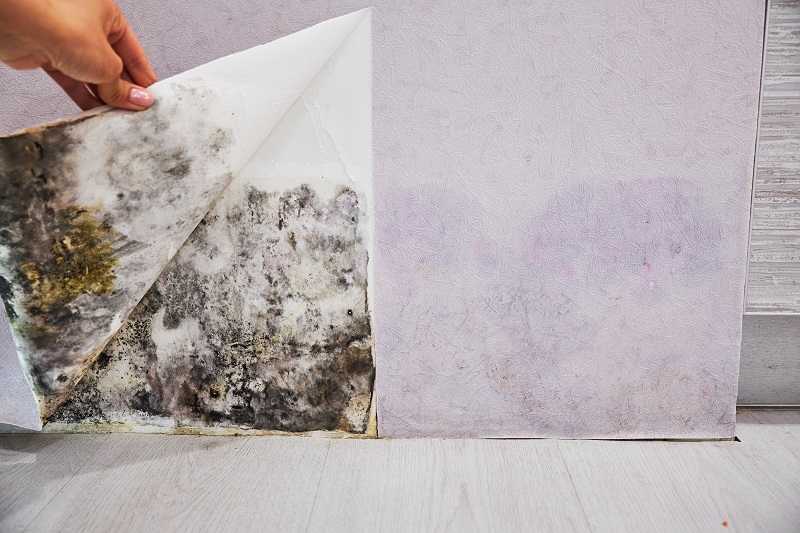Mold has a smell of damp wood, soil, or other earth like odors. Some one describe the smell of mold and mildew as musty or stale.
The odor of mold can be subtle or pungent, but in either case, it’s mostly unpleasant. When you smell mildew or mold in your home, you certainly want to find the source and eliminate it.
Not just because the smell, but because mold growth that is left unchecked can eat away at ceilings, drywall, clothing, and other surfaces over time.
In addition to the extensive structural damage, mold can also cause respiratory disease in occupants of the home.
If you catch a whiff of that familiar damp smell of mildew in your home, consider looking in some common hiding spots for mold growth.
Table of Contents
5 Places to Check for Mold if You Smell it But Can’t Find it
Under the Carpet
When carpeting gets wet, it retains moisture for a long period of time. This makes carpets a prime location for hidden mold growth.
A carpet doesn’t need a basement flood or other major case of water damage to get damp enough for mold.
Sometimes leaving a window open during rain is enough to cause mold to grow. Or if someone happens to spill a drink on the carpet and neglect it.
Keep your carpets clean and vacuum regularly. If you smell mold in a room with carpet, it may be worth considering tearing a portion up to investigate.
Mold Behind Drywall
The cellulose contained in drywall materials are an excellent food source for mold colonies. If drywall becomes wet, mold has everything it needs to grow and spread throughout your home.
Because pipes and water lines are often located behind walls, something as small as a minor pipe leak or drip can trigger mold growth.
Contact a mold specialist to test areas of drywall for moisture, and if necessary, make cuts into the drywall to inspect for possible mold.
In the Attic
The attic is one of the most common places to find mold. This is because it’s a dark and typically neglected area of the home.
Additionally, houses without proper attic ventilation will cause the attic to become hot and humid, primary factors of mold growth.
Keep your attic well ventilated to avoid mold by adding the necessary fans and duct work. Check to see if your bathroom ventilation is ending up in the attic, a common design of older homes.
In the Laundry Room
When it comes to mold, think moisture. This might mean that the smell of mold is coming from where your washing machine is located.
A washing machine that has a subtle leak (such as a leak from the bottom of the washing machine) can create a moist environment for mold growth.
It’s a good idea to move your washing machine from time to time and clean thoroughly around and underneath it.
In the Air Conditioner
If mold is growing within your air vents or air conditioning unit, it would be a major reason your house may smell of mildew.
Mold in AC units most commonly occurs when the systems are not run for long period of time.
Be sure to use your AC in the hot and humid months, or to have a professional inspect the air conditioning for mold if it hasn’t been used in a long while.
Who to Contact for Mold Remediation
If you smell the presence of mold or mildew in your household, contact a mold remediation service to come and do an inspection.
ServiceMaster by Replacements provides mold abatement in the Ocean, Monmouth, and Union county areas of New Jersey. Our mold specialists are IICRC-certified and will locate the mold, safely contain the spread, and effectively eliminate it from your property.
We are available 24/7 at (732) 842-6917.







